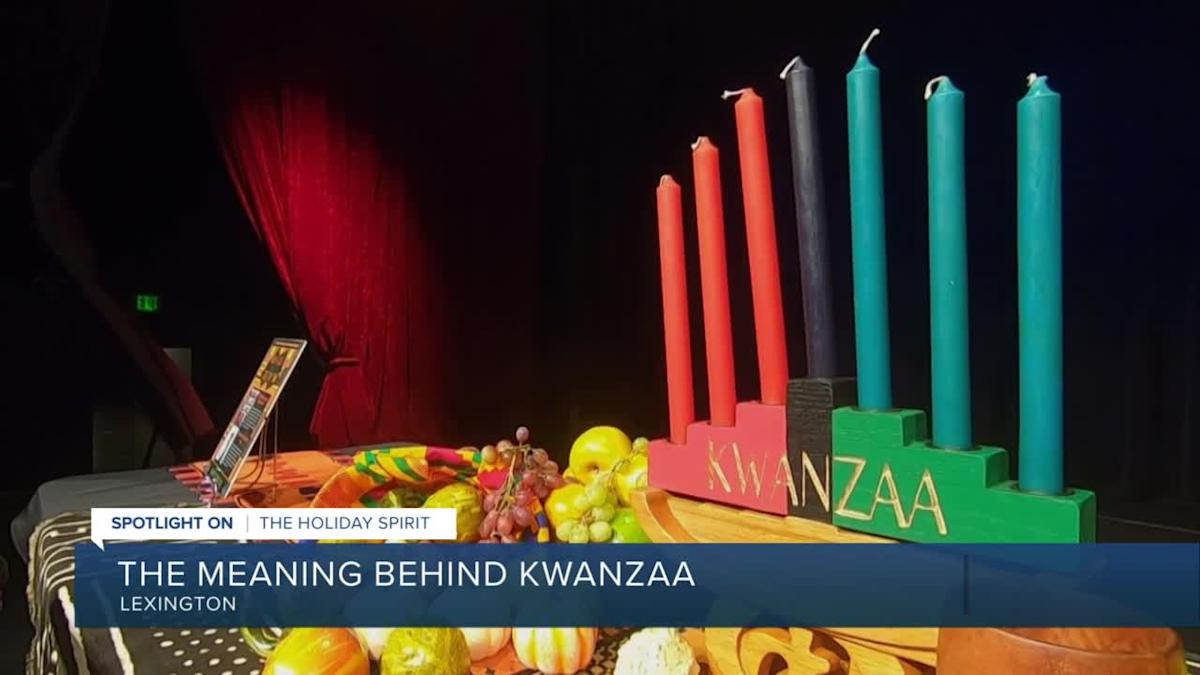Kwanzaa, a celebration that resonates with a profound cultural significance, invites us to contemplate the essence of community and heritage within a multifaceted mosaic of human experience. It begs the question: how can the Bahá’í teachings, which emphasize unity, equity, and harmony, illuminate our understanding of Kwanzaa’s values? As we traverse through the rich tapestry of Kwanzaa’s principles, we may discover synergies that challenge conventional perceptions of cultural observances, revealing a collective path towards communal integrity.
To appreciate the profundity of Kwanzaa, one must first delve into its foundation. Established by Dr. Maulana Karenga in 1966, Kwanzaa was conceived as a means of fostering African-American identity and encouraging a celebration of African heritage. It is celebrated from December 26 to January 1, with each day dedicated to one of the seven principles known as the Nguzo Saba. These principles—Umoja (Unity), Kujichagulia (Self-Determination), Ujima (Collective Work and Responsibility), Ujamaa (Cooperative Economics), Nia (Purpose), Kuumba (Creativity), and Imani (Faith)—form the underpinnings of Kwanzaa, promoting values that resonate profoundly within the Bahá’í Faith.
First and foremost, the principle of Umoja, or Unity, complements the Bahá’í exhortation for global oneness. The Bahá’í teachings assert that humanity is a single entity, with divine purpose emphasizing the need for unity among diverse cultures and peoples. Both Kwanzaa and the Bahá’í Faith beckon individuals to recognize the intrinsic connections that tether them to one another. The challenge lies in translating this abstract notion of unity into tangible actions that foster inclusivity and mutual respect amid societal differences. Are we prepared to embrace the nuances of collective identity without sacrificing individual expression?
Kujichagulia, or Self-Determination, serves as a vital component of Kwanzaa, exhorting individuals to define and assert their identity. This principle resonates with the Bahá’í focus on self-empowerment and the necessity of conscious effort in personal development. The Bahá’í teachings advocate for knowledge as a vehicle for transformation, urging individuals to engage in a constant quest for understanding. The interplay between self-determination and the quest for knowledge challenges us to ask: how do we navigate the delicate balance between cultural pride and collective growth? Can the wisdom we gain from others enrich our own self-definition?
The third principle, Ujima, underscores the importance of collective work and responsibility, mirroring the Bahá’í belief in service to humanity. In both frameworks, the aspect of shared responsibility leads to enriched community life. However, the question arises: how can we cultivate environments that inspire individuals to embrace responsibility beyond mere obligation? It beckons us to consider the transformative potential rooted in altruism, compelling us to act not just for our welfare but for the welfare of others, thus creating a ripple effect of positive change.
Ujamaa, the principle of Cooperative Economics, is particularly salient in our increasingly interconnected world. Bahá’í teachings stress the importance of justice and fairness in economic dealings, mirroring the essence of Ujamaa—that economic endeavors must serve the community rather than the individual alone. Herein lies the challenge: in a society driven by individualism, can we reconcile the need for personal success with the ethical imperative of communal economic justice? The ongoing discourse surrounding economic inequalities within communities presents an opportunity for both Bahá’í and Kwanzaa adherents to advocate for cooperative enterprises that prioritize equity and shared prosperity.
As we move to the principle of Nia, which denotes Purpose, it prompts contemplation regarding the overarching aim of our actions. In the Bahá’í context, purpose is directed towards the betterment of society and the advancement of civilization. Both teachings compel individuals to reflect on their motivations and aspirations. Do our personal endeavors align with larger societal goals? The challenge lies in discerning pathways that marry personal ambitions with communal well-being, fostering a culture of purposeful lives focused on service and contribution.
Kuumba, or Creativity, encourages innovation and the pursuit of excellence, resonating with the Bahá’í affirmation of creativity as a divine attribute. Both movements inspire creativity as a means of not only expressing individuality but also contributing to the enrichment of community culture. The crux of the challenge emerges here: how does one nurture creativity within a framework that emphasizes collective values? It requires fostering an environment where innovation thrives, reflecting a confluence of individual inspiration and collective necessity.
Lastly, we arrive at Imani, or Faith, which underscores the belief in the community’s collective strengths and aspirations. The Bahá’í Faith places immense importance on faith, not solely as a spiritual belief but as a foundational principle for constructive action. The question posed here is profound: how do we keep the flame of faith ignited in the face of adversity? Both Bahá’í teachings and Kwanzaa principles provide a roadmap for instilling hope and resilience within communities, affirming that faith is not merely passive belief but an active engagement with the world, inspiring action toward creating a better future.
In conclusion, the intersection of Bahá’í teachings and Kwanzaa’s principles offers a rich landscape for exploring the essence of community and cultural identity. Each principle invites individuals to engage deeply with their personal and communal narratives, prompting reflections that challenge preconceived notions. As the celebration of Kwanzaa unfolds, it presents a compelling challenge: How can we, as a global community, embody these principles in a manner that promotes the unity and enhancement of all, facilitating a shared commitment to a universal cause? The answers may lie in our willingness to embrace the guiding threads of our intertwined destinies and the collective strength that emerges from such unity.
